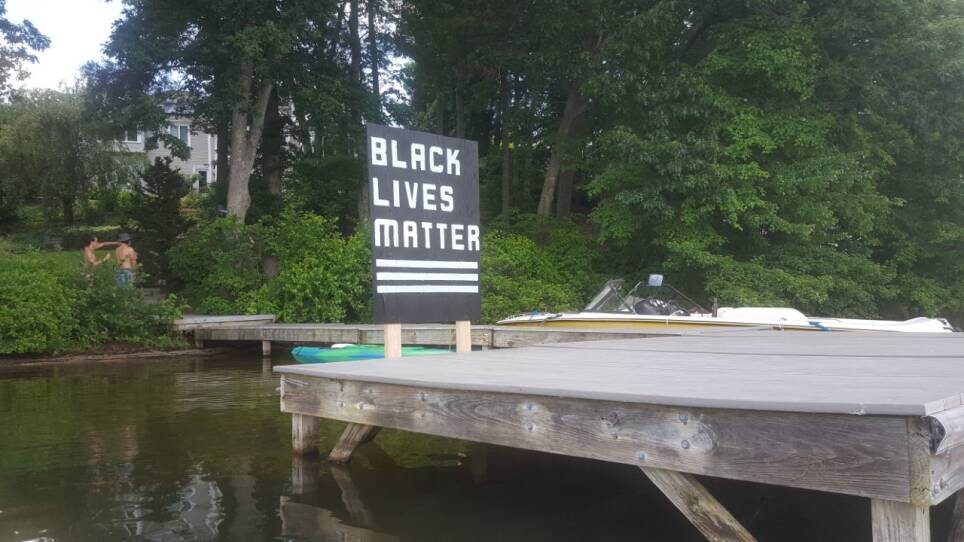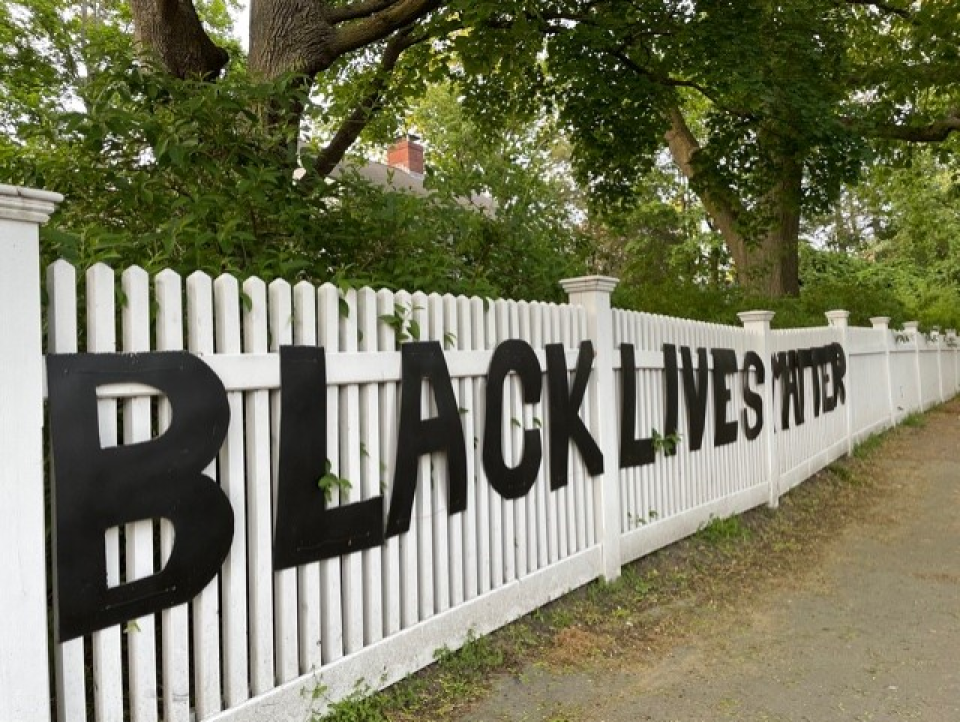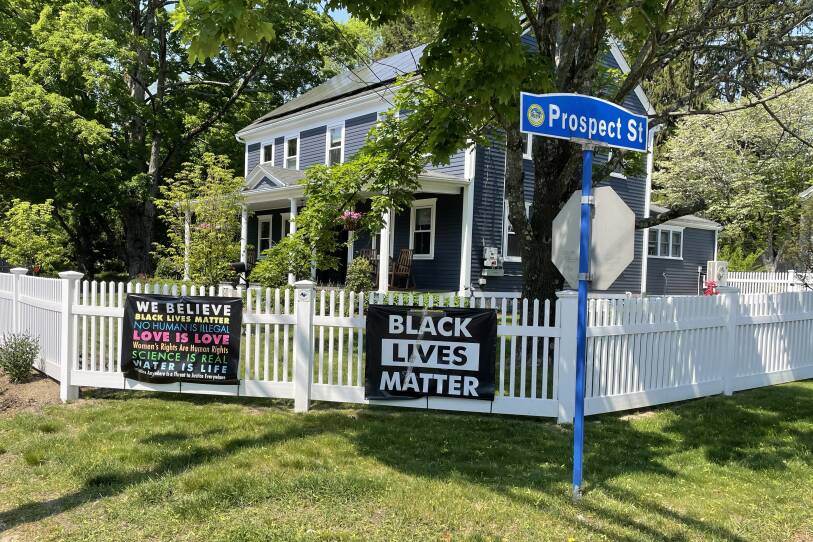What does a Black Lives Matter sign say about the person who posted it?
As the first anniversary fo the murder of George Floyd approached, GBH News staff spoke to people around Massachusetts to get the stories behind their signs declaring support for the Black Lives Matter movement. The sign-posters all told us they felt compelled to take some action, within their means, to show support for changing the systems behind the ongoing killings of Black people at the hands of police.
A groundswell of anger and protests aimed directly at police violence began not long after Floyd was killed on May 25, 2020. At the same time, Black Lives Matter signs, both purchased and homemade, popped up in yards and in windows all over the state.
Here are a few of those signs, and the stories behind them.

Peter Fontana works on U.S. Defense contracts for Raytheon and said his children convinced him to put a sign up for all of his neighbors to see. He also flies an American flag every day along with BLM and Pride banners.
"I think it's something that really cements what I consider to be American values. I think they should always fly together."Peter Fontana, Wrentham, Mass.

This Brattle Street display was created by Tom Randall and his daughter the week after George Floyd's murder. Among many messages of thanks and support, Tom has received three anonymous letters saying there must be a better use of his time.

Jessica Salvati is raising a family in Holliston and has marched in her town’s Black Lives Matter protest with her children. She follows the movement closely online and has worked with an art teacher at the local school to include more women, as well as Black and Brown artists, in the curriculum. Her Black Lives Matter sign is taped together; she says it was torn down, but she decided to repair it and put it back up.

The two signs above on Chauncy Street in Cambridge were painted by Tara Adler after George Floyd was murdered. For the first few months she had fresh flowers in the vase. Then it got expensive. Her neighbor Theresa added some plastic flowers.

Stuart Pitchel owns a sign company. He was so moved by learning of George Floyd’s murder — he won’t watch the video — that he felt he could no longer be silent. While he’s friendly with many neighbors, business owners and police officers on “the other side” of the political divide that he says only fuels systemic racism, he decided to put his wish for change on a sign. He gave away 500 of the signs to anyone who asked, and he encouraged them to donate to non-profits instead of paying for the signs. At a value of $25 per sign, he estimates he encouraged people to donate as much as $12,500 to related projects for change.
This story was reported by Marilyn Schairer, Aaron Schachter, Carolyn Libby and Edgar B. Herwick III.





